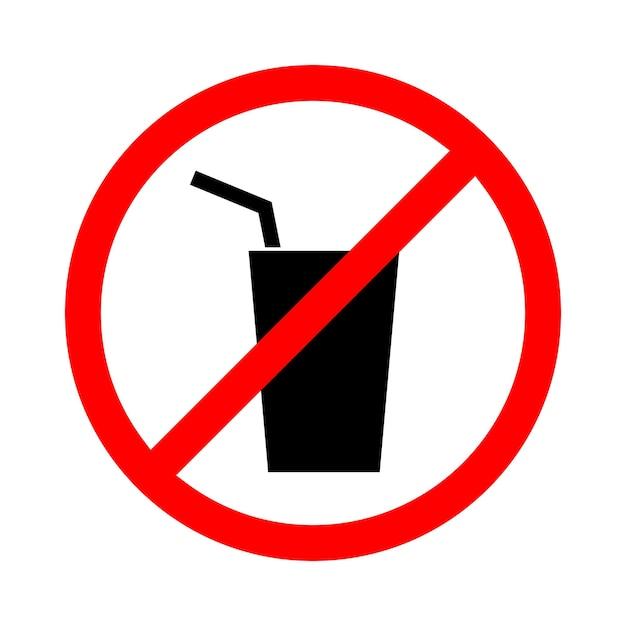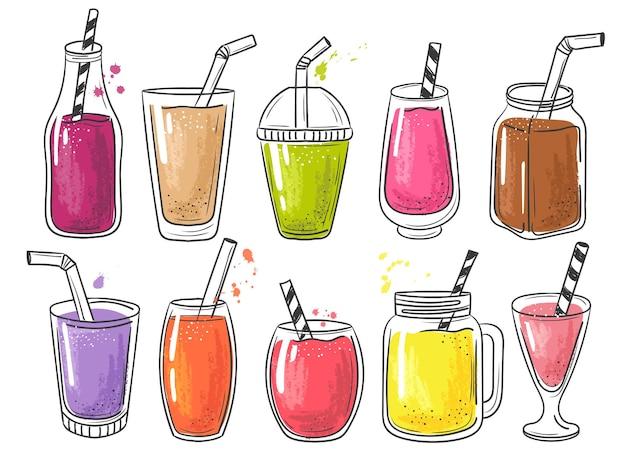Schools play a crucial role in shaping our children’s future, not only academically but also in terms of their overall health and well-being. One hotly debated issue is whether soft drinks should be allowed in schools. As we become more aware of the detrimental effects of excessive sugar consumption, it’s essential to consider the impact these beverages have on our kids. In this blog post, we will delve into the reasons why some argue for a ban on soft drinks in schools and explore the potential benefits and concerns associated with such a prohibition.
Soft drinks, such as Coca-Cola and other carbonated beverages, have long been popular among both children and adults. However, mounting evidence suggests a link between excessive soft drink consumption and various health problems, including obesity, tooth decay, and an increased risk of chronic diseases like diabetes. With these concerns in mind, the debate surrounding the presence of soft drinks in schools has gained momentum. Proponents of a ban argue that eliminating these sugary beverages from school vending machines and campuses would promote healthier habits and reduce the risk of long-term health issues.
Join us as we delve into the question: Should soft drinks be banned from schools? Let’s examine the potential impacts, explore the arguments from both sides, and consider alternative options for promoting healthier choices among our young generation.

The Potential Hazards of Soft Drinks in Schools
When it comes to the topic of whether soft drinks should be banned from schools, it’s a fizzy debate that has been bubbling up for years. While some argue that students should have the freedom to choose what they drink, others advocate for the removal of these sugary beverages from educational institutions. In this section, we will delve into the potential hazards of soft drinks in schools and examine the reasons behind the ongoing controversy.
A Sugar Rush Gone Wrong
Soft drinks are notorious for their high sugar content. With a single can of soda containing a staggering amount of sugar, it’s no wonder that health experts are concerned about their consumption among students. Excessive sugar intake has been linked to a host of health problems, including obesity, diabetes, and tooth decay. So, when students guzzle down soda at school, they could unknowingly be sipping on a recipe for disaster.
Deteriorating Dental Dilemmas
We all know the importance of taking care of our pearly whites, but the availability of soft drinks in schools can make this task even more challenging. The high sugar content in these beverages can wreak havoc on students’ dental health, leading to cavities, enamel erosion, and frequent trips to the dentist’s office. If left unchecked, this could result in a generation of students with smiles that are more decayed than the latest trendy dance moves.
The Slippery Slope of Unhealthy Habits
Allowing soft drinks in schools not only poses immediate health risks but also sets a dangerous precedent for students. By normalizing the consumption of sugary beverages at an early age, schools unintentionally contribute to the formation of unhealthy habits that can persist into adulthood. These habits can pave the way for a lifetime of poor dietary choices, putting students at a higher risk for obesity, heart disease, and other preventable illnesses. It’s like sending them off with a soda-filled time bomb in their backpacks.
A Quench for Profits
While health concerns should be a top priority in educational institutions, another factor often siping (pun intended) into the equation is money. Soft drinks can be a significant source of revenue for schools through vending machine contracts and partnerships with soda companies. These financial incentives can make it difficult for schools to resist the allure of stocking their hallways with sugary drinks. However, prioritizing financial gain over the well-being of students raises the question: is it really worth it to compromise their health for a few extra dollars?
A Sparkling Solution
In order to promote a healthier environment for students, many schools have taken steps to ban soft drinks from their premises. By replacing sugary beverages with healthier alternatives like water, flavored water, or natural fruit juices, schools can provide students with hydration options that are beneficial for their overall well-being. Additionally, education programs can play a pivotal role in raising awareness about the dangers of excessive sugar consumption and empowering students to make informed choices about their beverage preferences.
In conclusion, the debate over whether soft drinks should be banned from schools remains a contentious topic. The potential hazards of these sugary beverages, from their contribution to health issues like obesity and diabetes to their negative impact on dental health, cannot be ignored. While the financial benefits of stocking soda may tempt some educational institutions, prioritizing the well-being of students should always take precedence. By opting for healthier alternatives and educating students about the dangers of excessive sugar intake, schools can foster an environment that promotes both physical and mental well-being, ensuring a brighter, soda-free future for generations to come.

FAQ: Should soft drinks be banned from schools?
How can I kick my Coke habit
If you’re looking to break up with the bubbly, here are a few tips to help you kick that Coke habit to the curb:
- Start Slow: Rome wasn’t built in a day, and neither was your addiction to Coca-Cola. Gradually reduce your intake instead of going cold turkey.
- Find Healthy Alternatives: Replace that sugary sip with something equally refreshing. Try infused water, flavored sparkling water, or herbal tea.
- Stay Accountable: Enlist a friend or family member to join you on your journey. Encouragement and a little healthy competition can go a long way.
- Treat Yourself: Reward yourself for each milestone reached. Treats like a massage, a new book, or a day at the spa can keep you motivated.
What are the benefits of Coca-Cola
Ah, Coca-Cola, the elixir of life… or is it? Despite its deliciousness, this fizzy beverage offers little in terms of health benefits. Here’s what Coca-Cola is good for:
- Refreshing Your Palate: If you’re in need of a tasty pick-me-up, Coca-Cola can be quite the quencher. However, it’s worth noting that water accomplishes the same goal, minus the sugar rush.
- Cleaning Rusty Coins: Believe it or not, Coca-Cola can work wonders on tarnished pennies! Simply drop them in a bowl of Coke, let them soak for a bit, and watch that copper shine.
- Marinating Meat: Want to add a unique twist to your barbecue? Coca-Cola can be used as a marinade for flavorful meat, thanks to its acidity and hint of sweetness. Just remember to drink water with your meal instead!
Can drinking Coke every day result in an early demise
While the idea of an extended lifespan may go “fizz” when consuming Coca-Cola daily, conclusive evidence linking it to an early demise is still lacking. However, moderation is key. Regularly consuming sugary drinks like Coke can contribute to weight gain, dental issues, and an increased risk of chronic diseases. So, it’s wise to keep those sips in check!
Would banning soft drinks from schools have any positive effects
Absolutely! Banning soft drinks from schools can have a range of benefits. Aside from preventing the temptation of reaching for sugary beverages during school hours, it can also:
- Promote Healthier Choices: By removing soft drinks from school premises, students are more likely to choose healthier options such as water, milk, or natural juices.
- Improve Focus and Energy: Soft drinks can lead to energy crashes and hinder concentration. Banning them can contribute to a more productive learning environment.
- Reduce Childhood Obesity: Regular soda consumption is linked to weight gain. By removing sugary drinks from schools, the risk of obesity among students can be decreased.
Can drinking Coca-Cola affect pregnancy
While a can of Coca-Cola won’t magically transform your baby into a mini-bottle, it’s important to be mindful of what you consume during pregnancy. While an occasional sip is unlikely to cause harm, excessive consumption of caffeinated beverages like Coke is not recommended. Opting for healthier beverage options and consulting with your healthcare provider is always the best approach when expecting.
Will a soda ban really make a fizz-tastic difference
Absolutely! Implementing a soda ban can create a wave of positive changes. Here’s why a soda ban could be a refreshing idea:
- Reduced Sugar Intake: Soft drinks are loaded with sugar, and by banning them, students’ overall sugar intake can be significantly reduced, promoting healthier dietary habits.
- Improved Physical Health: Cutting out sugary drinks can lead to better weight management, reduced risk of obesity, and a lower chance of developing chronic health conditions.
- Enhanced Academic Performance: With less sugar-induced energy crashes, students are likely to experience improved concentration, focus, and overall academic performance.
Is it true that soft drinks can harm your kidneys
While enjoying the occasional soda won’t turn your kidneys into tiny soda fountains, excessive and long-term consumption can have negative effects. Soda, particularly those high in phosphoric acid, can potentially increase your risk of kidney stones. So, it’s best to keep soda sipping to a minimum and guzzle water instead.
Can Gingerale keep you hydrated
Ah, the age-old question of whether Gingerale can quench your thirst. While the ginger and carbonation in Gingerale may provide a refreshing sensation, it’s important to note that the high sugar content can actually contribute to dehydration. So, if hydration is your goal, stick with good old H2O and save the Gingerale for when your taste buds crave a fizzy treat.
Why is Coke Zero considered to be bad for you
Ah, Coke Zero, the sugar-free hero… or is it? Despite its name, Coke Zero is not without its concerns. Here’s why it’s not all sunshine and rainbows:
- Artificial Sweeteners: Coke Zero contains artificial sweeteners, such as aspartame, which some studies suggest may have negative effects on metabolism and gut health.
- Acidic Nature: Just like its sugary counterpart, Coke Zero is acidic, which can harm tooth enamel and potentially lead to dental issues.
- Relation to Weight Gain: While it may lack calories, some studies indicate that consuming artificial sweeteners can actually lead to weight gain or disrupt the body’s natural response to sugar.
So, it’s best to enjoy a can of Coke Zero as an occasional treat rather than a daily beverage.
Remember, moderation is key when it comes to soft drinks, whether in schools or at home. Quench your thirst with healthier alternatives, keep an eye on your sugar intake, and make sure to prioritize your overall well-being. Stay hydrated, my friends! 🥤
